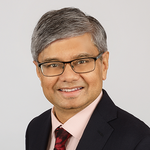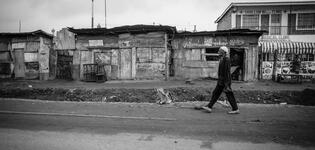Blog
In the Director's chair
Reflections on my first six months as Director
My first six months as Director of UNU-WIDER have been busy, enlightening, and rewarding. We’ve launched a new work programme, with flagship projects focused on a cohesive research base addressing key SDGs; I’ve also worked on fostering partnerships to cement the Institute’s place as a valuable branch in the UN family tree; and in the midst of all of that I’ve had the opportunity to contribute to several blogs, interviews, and other media opportunities to mobilize the knowledge we produce here and build awareness of UNU-WIDER’s range and depth of research and policy analysis.
Being the think tank for the UN - solidifying partnerships and looking for new ways of engaging
One of the first things I realized when I took the helm at UNU-WIDER was our value in the UN system. UNU-WIDER has a unique perspective and voice and is a leading development economics think tank, which can be an incredibly useful resource for the UN in formulating strategy and tactics for achieving the Sustainable Development Goals and Agenda 2030. I’ve been working on further developing and fostering partnerships to help link our high-quality academic research to the processes of the UN and the member states around the SDGs.
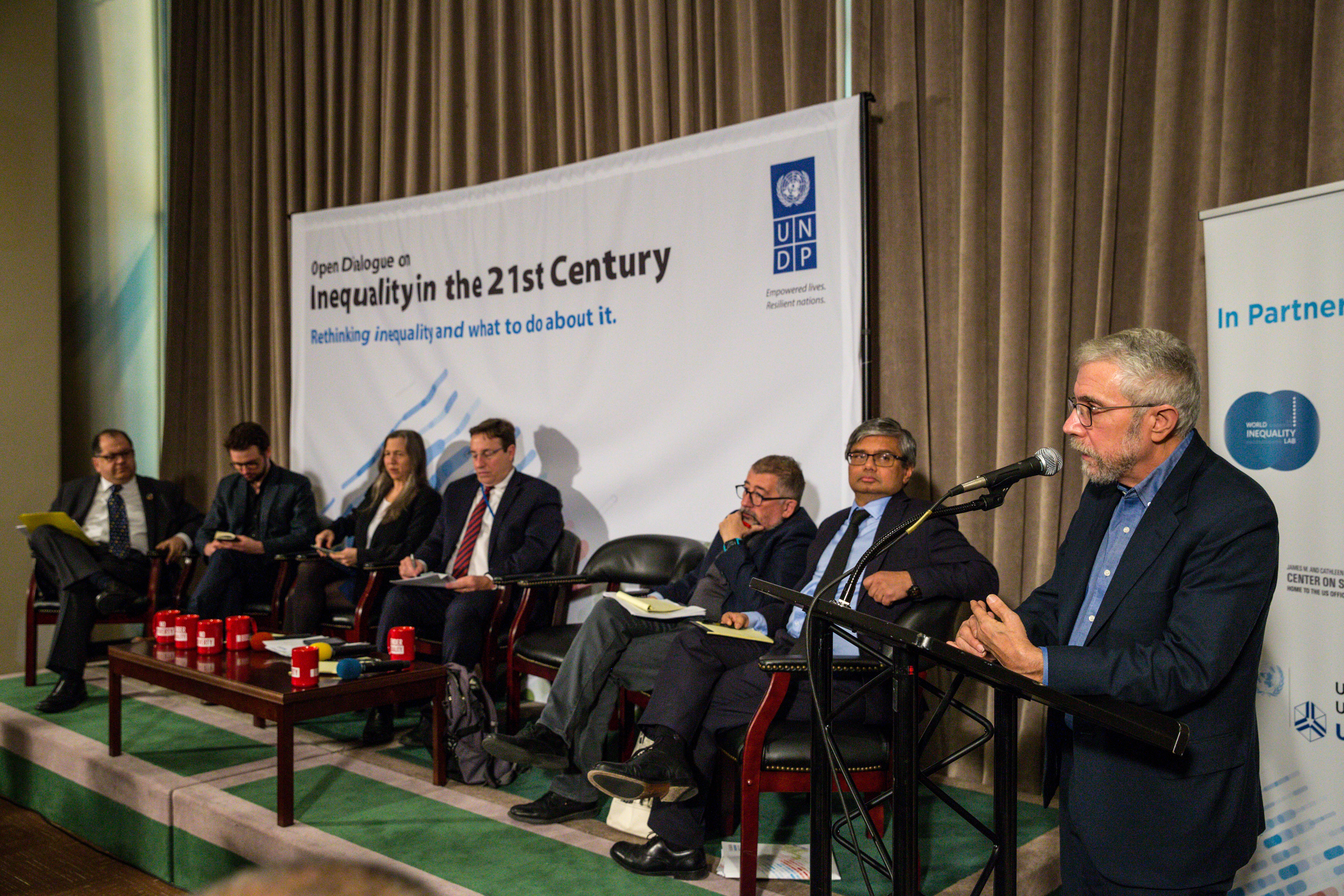
These efforts have resulted in our participation in several UN events, starting with an event by UNDP and the Human Development Report on inequality. The event, held at the Human Development Report Office in New York, took the form of a symposium on measuring inequality in the 21st century. Carlos Gradín and I attended and discussed research from the UNU-WIDER Inequality in the giants project. The debates during the event gave us the opportunity to draw on our substantial body of research on inequality and mobilize that knowledge for addressing one of the most important challenges of our times – the growing inequality within and across countries.
Shortly afterwards we were back in New York again, this time partnering with UNDESA to co-create a workshop on inequality at the UN Secretariat. This workshop brought together key experts on inequality from across the UNU-WIDER network to reflect and debate the lessons learned in measuring and understanding trends in inequality. The workshop provided an opportunity for us to share insights from our research on inequality, and from the data contained within our World Income Inequality Database (WIID). The outcomes of these discussions will contribute to an in-depth review of SDG10 which will take place in July during the High-Level Political Forum on Sustainable Development 'Empowering people and ensuring inclusiveness and equality'.
I was also invited to present a keynote address at the 75th Session of the Economic and Social Commission for Asia and the Pacific in the panel discussion on Asia-Pacific Countries with Special Needs Development Report 2019. The address drew much interest from the audience, and I’ve since been contacted regarding the possibility of UNU-WIDER partnering with UN agencies working on the region, something that I feel presents some exciting prospects for the future.
11 years, 17 SDGs – how do we now prioritize for real success
There are only 11 years until the 2030 deadline for achieving the SDGs, and looking at how we are tracking so far, especially in some of the least developed countries, which are an important focus for us, it’s clear that currently we’re not well placed to meet many of the goals. This is somewhere I feel strongly that UNU-WIDER can play a role – pushing research for progress on the SDGs.
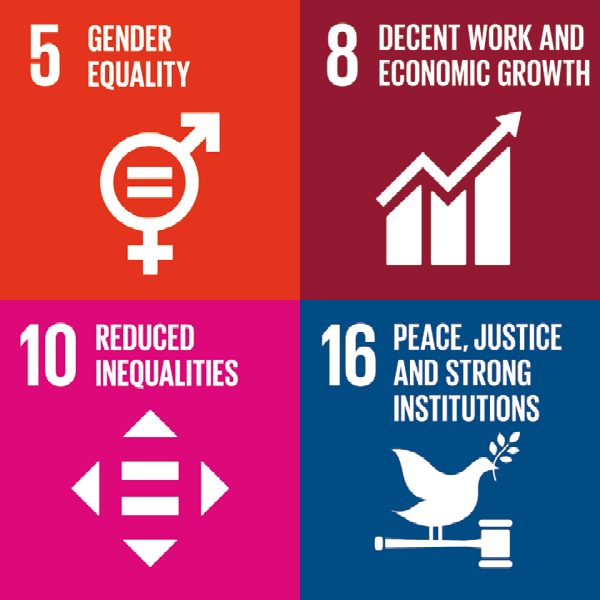 Our new Work Programme 2019-2023 kicked off earlier this year with five flagship projects which address an interlinked set SDGs. These will be the focus for our research in the next four years – SDG5, gender equality, SDG8 decent work, SDG10 equality, and SDG16 strong institutions
Our new Work Programme 2019-2023 kicked off earlier this year with five flagship projects which address an interlinked set SDGs. These will be the focus for our research in the next four years – SDG5, gender equality, SDG8 decent work, SDG10 equality, and SDG16 strong institutions
For the research during this Work Programme it was paramount to me that the projects we would undertake at UNU-WIDER would all fulfil two key features; they would be interdisciplinary, and they would dig deep in their respective research topics. So in launching our new flagship projects we started each with an inception workshop which proved to provide an exciting opportunity to bring together a diverse range of stakeholders, both from academic and policy backgrounds. I found the events to be a great source of creative and innovative ideas and egalitarian discussion. They also kickstarted discussion among UNU-WIDER staff and has helped to foster an atmosphere of questioning and thinking outside the box about how we address our research questions.
Development through data
The overall theme of the new work programme is structural transformation, something for which there is little data available, but we hope to change that very soon.
We will work in partnership with the Groningen Growth and Development Centre (GGDC) to build on their existing structural transformation dataset, with a much larger coverage of low-income countries, more sectors and data up to the most recent period.
Data is an integral part of our work, and invaluable to researchers and policy makers in the field of development economics. We will continue to maintain other sources of high quality data, including the freely available comprehensive datasets on inequality – World Income Inequality Database (WIID), and the global taxation – Government Revenue Database (GRD) .
Reaching around the world from Helsinki
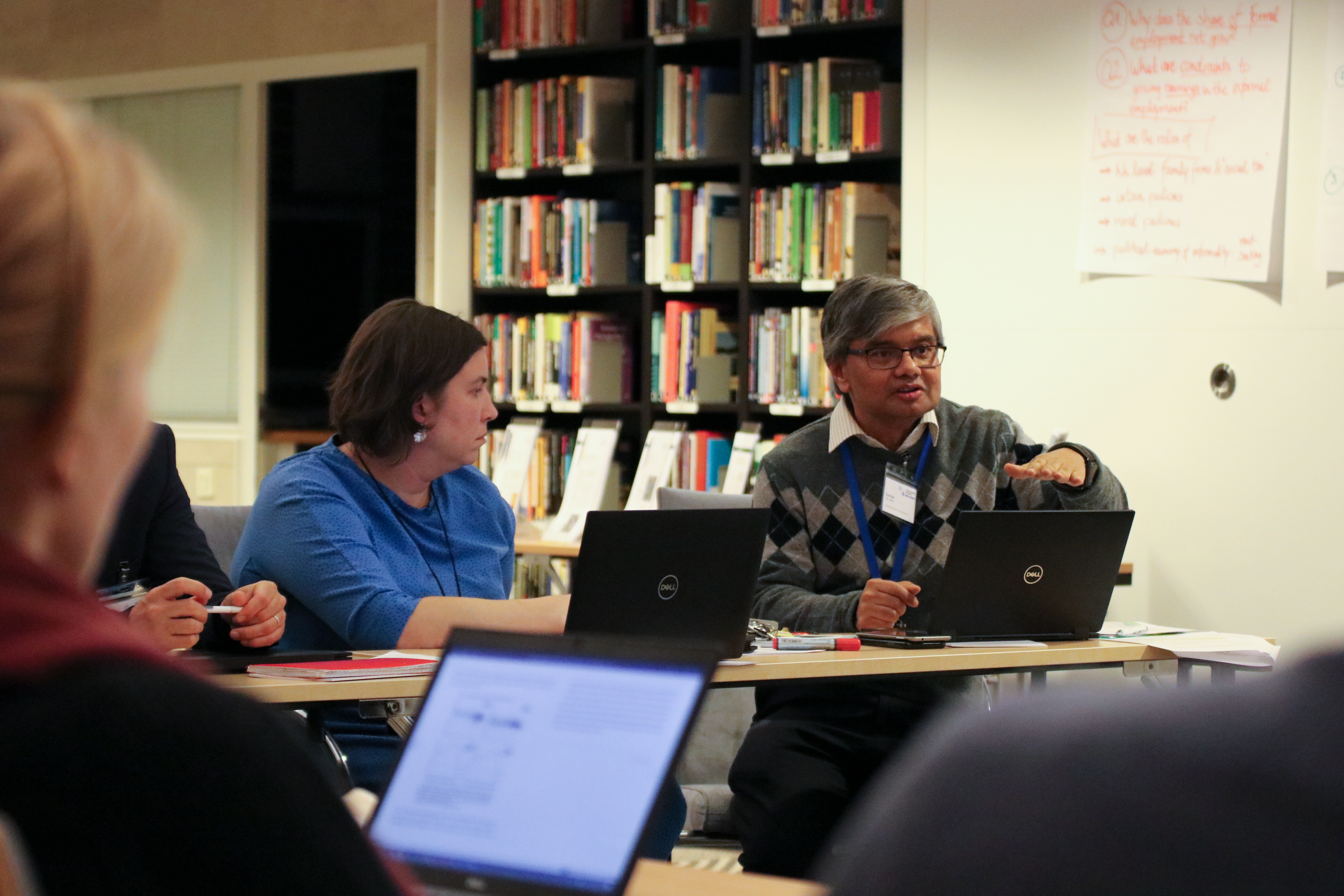
When I started I knew that UNU-WIDER has some country programmes that would continue during my tenure, but it wasn’t until I went to see them, until I met the leaders and collaborators of these country programmes that I could really appreciate their value to the countries we work in, and to the individuals from around the world who collaborate on these projects.
In Ghana, Wisdom Akpalu leads a partnership with the University of Ghana, Legon, where we host a PhD programme in development economics; meanwhile in South Africa and Mozambique we have projects whose success is in a large part a credit to the ownership of the local government counterparts, and the strong and open partnerships that have been developed. In Tanzania we have just launched a new project in partnership with UONGOZI Institute working together on collaborative research.
Another new endeavour in 2019 is our Summer School in partnership with DPRU in Cape Town, where 20 early career researchers from the Global South will come together for a 2-week intensive course on applied labour economics. This is a particularly important project as it also acts as a tool to address the asymmetry of knowledge and capacity between researchers in the Global North and Global South, something UNU-WIDER is keen to combat.
Leaps and bounds
My first 6 months have been busy, and I don’t plan on slowing down. We’re just getting started, and I think that the next four years could be some of the most exciting, fulfilling and transformative for UNU-WIDER, and for the UNU-WIDER network as a whole. I’m looking forward to working together, through our network and partnerships, to continue to deliver high quality research and policy analysis, and to act as a driving force to support progress across the SDGs.
Kunal Sen is the Director of UNU-WIDER. Follow him on Twitter @kunalsen5.
The views expressed in this piece are those of the author(s), and do not necessarily reflect the views of the Institute or the United Nations University, nor the programme/project donors.
 Join the network
Join the network